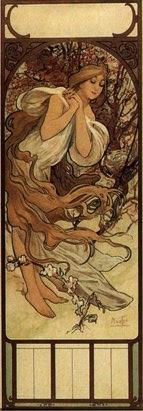
 Harris, Harris & Donahue Literary Agents http://harris-donahue.tripod.com |
CHAPTER I THE SEEDS ARE SOWN
A sower went out to sow his seeds … Parable of the Sower Young Daniel Morris entered his bungalow in Queens with the Bronx to the north and Brooklyn tothe south. He felt deeply the bitter pangs of their poverty. When his father had been well he had worked as a runner or messenger in Wall Street. They had just managed. Then his father had become ill from a failing heart; there had been long and expensive spells in hospital. His father had been a weak and ineffectual man. When he died their savings had gone. Daniel had only one brother, Reuben, younger than himself. In her day their mother had worked at the cosmetic counters of Macys, the world largest department store, filling the square block to Broadway to 7th Avenue. Now she slogged endlessly as a char for other people as well as keeping their own single home spotless. Daniel helped out with grocery deliveries on Saturday mornings for a small shop nearby. Reuben was a young scamp, one of a pack of similar scamps who foraged and showed off as far as fashionable Manhattan and the middle class suburbs of Long Island – smashing windows, letting tires down, causing mayhem and then fleeing from the law. So far, Reuben, short, stocky, tough, had not got into serious trouble but it was all a great strain on Daniel and his mother, Ellen, with her never failing warmth and devotion, her ever-ready smile and flood of affection, especially for Daniel, her first born. Daniel and Reuben wentto a good public school. Here, Daniel was always in the middle of his classes, always average. He, too, showed off to compensate for his impoverished background; the desire to impress dominated, especially in his sports. He was a good swimmer, as good as any of the 4,000 students, with his baby face, black hair and full sensuous lips. However, as yet, he lacked direction. He was really just drifting with the crowd. Then one day at school, his teacher for English, Mr Patrick Williams, called Daniel into his room. He was a tall man, stern but not unbending with a mop of fair hair, sharp blue eyes which missed nothing, and a wealth of experience with boys like Daniel. The boy entered his august presence. “Good morning, Daniel. Come in and sit down.” Nervously, Daniel did so, sitting on the edge of his seat in his shabby clothes and scuffed shoes. “Your school life here is ending, Daniel. Have you decided what you are going to do next?” Sheepishly, Daniel shuffled his feet and said he presumed he would have to get a job and help out at home. Mr Williams was precise, emphatic. “Well now – you must avoid just drifting. I’ve been thinking about you. Your grades are not outstanding but not too bad either. Have you ever considered the army? It’s a good secure life with plenty of adventure and travel. Time would look after you. You’d make a good soldier. Who knows – you could rise to high rank with hard work and perseverance. Daniel started. The Army! Why not? His black eyes gleamed. No more worries over money! He blurted, “Yes, sir. I think I would like that.” “There is the possibility that we could get you a place as a cadet at the Curtis Military Academy in Connecticut. It’s not too far away. You would have to work hard here to pass the entrance requirements. What do you think of that as a prospect?” Daniel was thrilled. Nursing an inner excitement, he said immediately, “It sounds wonderful, sir!” “Good. I’ll get the wheels turning. Keep an eye on your brother, Rueben. Run along now and I’ll keep you informed. You’ll want to tell your mother.” “Yes, Sir. Thank you Sir.” Daniel left in a state of euphoria. That evening he told his mother all about it. At last she had some good news – there hadn’t been too much of that. She, too, was thrilled. Gladly she said, “It would solve all our problems, dear. You would like the life and be secure. How smart you would look in your uniform. You would come home on furloughs. You would become an officer!” Even Rueben, usually scornful, was impressed. Daniel had something to aim at now; if he was not all that bright he would make up for it with hard work. He simply must qualify in all subjects. It seemed the chance of a lifetime; gone would be the grinding humiliation of always being short of cash, always shabbily dressed, often hungry. He would escape from the drab streets stretching all around like a desert. If he made it in the years to come he could help his mother; she was the one focal point of his better intentions. Born in 1950, Daniel was now a gangly youth. In his swimming he had demonstrated his staying power. This was now increased by his drawing ambition to make something of himself and show the world he was as good as any. Soon, he hoped, his shackles would be shed. He managed to lift his grades into the top ten percent as required. At last, Patrick Williams arranged for Daniel’s enrolment. He had been accepted as a nominee and was due to arrive at the Curtis Military Academy in Connecticut, the Nutmeg State, near Lichfield, at the end of August 1967, when Daniel was just seventeen. Patrick had ascertained that eight percent of the cadets’ time was spent on education and only twenty percent on military training, so it seemed like a good university. His mother had scrimped a few dollars together. Bursting with pleasure and satisfaction, she made herself presentable at Macy’s for the journey and visit. Patrick had promised to go with them on the red letter day of Saturday and see Daniel safely enrolled if he passed the medical. With his swimming, Daniel was in good shape, tall and slim. The great day had arrived. Daniel had his new luggage. Reuben was left at home with strict instructions to behave himself. The three of them boarded the train and headed for Lichfield. Daniel wore his only suit of nondescript brown pin stripe with white shirt, brown tie and black shoes. Helpful and encouraging, Patrick reassured them. Daniel would do just dandy, he promised, his baritone voice firm like a rock. He was a real help in this new world. At last the Curtis Military Academy loomed before them, surrounded by a high brick wall with imposing iron gates at the entrance. Speaking up, Daniel gave his name which was checked and ticked. They were directed to the main building. Keen young men, proud parents and relations, swarmed everywhere helped by smartly dressed cadets. The buildings were very impressive. Of dark red brick, Georgian design, they were well set off in the midst of green lawns, ancient trees, a lake and a parade ground with the starts and stripes flying with the Academy’s own flag of dark blue and gold. Enthusiastically, Ellen and Patrick set off on a guided tour round the magnificent grounds to be welcomed by the Commandant, shown films, the museum and gift shop, to come to rest eventually at an organ recital in the chapel. All was most impressive. Everyone was pleased the new cadets were to have a sound education with the right values at no cost to parents and actually with a salary.
While this was taking place, the young men themselves were being driven hard. There were some four hundred entrants. How many would be accepted? The first step was the indoctrination talk from a smart major with a clipped voice to motivate each young man to face up to the requirements squarely, to develop qualities of leadership under upperclassmen who seemed like young gods to the lowly recruits. Daniel and his confrčres reported to the Assembly Hall. Here they met with and said farewell to parents, guardians and relations. Ellen was pleased and sorry at the same time as they said goodbye. They were driven back in the bus to the station for the train home. Daniel had promised to write regularly. He expressed gratitude to Patrick. He was very nervous and somewhat apprehensive. It was a big step to take. They were committing themselves to three years of training and five years of military service, if not a lifetime. Then he was ready to face the future alone. The recruits followed a fixed routine to convert them from civilians. From now on their lives were controlled for every minute of the day. Escorted by upperclassmen, known as patricians, the new boys went to the station, one where their luggage was taken and tagged along with their money, immunisation records and letters of appointment. Each potential cadet was given an admission processing card to be present at every station. Daniel was allowed to keep ten dollars with his other ten taken to open an account for him through the local bank’s representative. Next he received his Issue Book which he was to carry for the rest of the Processing Week during which he would draw his equipment. Then he was measured for his own smart dress uniform of blue and grey. This was real progress, he thought, as he stood in line with scores of others. He collected shorts, T-shirts and his barrack bag. For some, Station Six was their last contact with the army as the Academy decided it did not want them or they themselves decided they did not want the army, to be ripped off by patricians who laughed at them in a shower of insults. This sorting out of men from boys would continue. Then came the vital medical; the doctors were thorough, checking everything. After some more anxious moments, thankfully Daniel passed, along with the great majority. The last four stations were safely over; the new cadets reclaimed their baggage. All personal knickknacks like keys and identification bracelets were taken and put in safes while they kept their watches and religious medallions. Again, they were checked to see that they had no more than ten dollars. Those who had were corrected and reported. Lunch was foregone. In the late afternoon of this traumatic first day, they met the one upperclassman with whom they would be in constant touch, the patrician who ruled their immediate destiny, their Squad Leader. There were ten recruits to each squad. Daniel’s Squad Leader, mocking and sardonic, a malignant gleam in his cold eyes, said little but it was very much to the point as he saw them through haircuts and issue of army style uniforms of dark green prior to the Oath Ceremony in the chapel and welcome by the Commandant, General Halsey Stahr. However, before this they all had to strip and stand in the cold showers, with one minute for soaping and one minute for rinsing, and getting out to do push-ups. They were in the army! Stress was on! Some were already wavering. Daniel gritted his teeth and jumped to it. Then they were in the chapel, built of brick like the rest of he buildings but with huge stained glass windows, and the motto of Curtis Military Academy, “Honour Above All”. Here the swearing in ceremony took place. As for religion, Daniel had decided to say nothing and go with the majority. There were many battle flags hanging serenely in the still air high above, infantry and artillery colours from the Civil War and through the Spanish American and First World War to World War Two. Impressed and uplifted by the Commandant, the new cadets were taken to their barracks. This was known as “the Zoo”. They were told this was because – as they were to realise only too well in the weeks ahead – they would be treated as animals, harried and harassed from dawn to dusk, constantly the butt of insult and mockery. The reason for this would be made clear later. They went for their first communal meal in Jefferson Hall. This was decorated in murals featuring battle scenes, with more stained glass windows and battle flags. There were some fifty tables, ten to each, with condiments in neat rows. They were assigned chairs at specific tables. Some fifty bustling and efficient waiters served food. At each table three plebs, cadets in their first year, called “Trotters” saw that food and plates were in order. A Trotter arranged the milk, juice and water. These Trotters had to know just what the Upperclassmen at each table wanted in the way of beverages. The Trotters had to sit upright in their chairs, look only at their plates, and speak only prescribed phrases connected with their duties. The new cadets were allowed to converse – there was a buzz of excited chatter as the day was discussed together with much mutual encouragement. Daniel was greatly relieved to be accepted. The first big hurdle was over. He was in! Curtis Military Academy appeared to the world as a stronghold of red brick, lawns and barracks preserving the old values which were being so eroded elsewhere. Would he make the grade? All were thrilled with the prospect, determined to do well come what may as proudly they developed their new allegiance. They were very new, very young and very idealistic…. The whole establishment had been presented to them – recruits and relations – as a different and special world, a fortress of wisdom in the middle of anarchy. As Daniel embarked on his first year in the Zoo, becoming an obedient pleb, he strove to live up to the requirements. These were hard and difficult calling upon all to do their utmost to excel. Every moment saw them all as part of an endless relay race for the higher stakes: survival with approval from on high. The mental and physical stress were part of the basic training to become officers. They were told that the constant pressure and tension were essential to enable them to act at once when in danger. There was no time for philosophy; action was needed immediately. Gradually, Daniel came to be able to do this almost as a reflex reaction. For plebs, the bugle announces reveille at six a.m. when they dress quickly and have physical training in the gym. Breakfast is followed by preparation for battle training with a breather from eight till eight thirty when classes begin. These continue til lunch from one til two p.m. More theory of the art and practice of war is followed by mass athletics, followed by drill on the parade ground, with lowering of the flag, until the evening meal at six-thirty p.m. During the evening, the cadet write letters, does homework and prepares for the next day’s classes and studies in his own room or meets his fellows for coffee and a chat, or instruction in dancing, or, sometimes, a movie until lights out is blown at ten p.m. From the word ‘go’ the cadet finds himself in a new world of constant demands which, at first, seem impossible but which, somehow, after training, he usually manages to do. While lacking any emotional support, except from letters from home, he becomes increasingly dependent on the satisfaction of obeying authority without question. All aspirations, hope, desire, are subordinated to obedience of authority. By the time he is ready for academic work he is no longer capable of thinking critically or for himself but increasingly as a soldier under orders making stock responses. Daniel persevered. But some twenty percent of the new cadets resigned within the first four months, rebelling against conditions and treatment in the Zoo. Gradually, the rest found their idealism turning into a sardonic, slightly critical attitude. The important thing was just to survive and work within the system, to cooperate and graduate. In his second year, Daniel’s squad was detailed to become part of a collective exercise for some one hundred cadets. It was mid-winter; the exercise included tactics at night aiming at seizing a strongly held enemy position with night firing featuring some live ammunition, tactical manoeuvres and combat, including the silencing of guards defending the target. The night was freezing. The exercise began with a brisk march to the area followed by bayonet training. Then icy rain and stinging hail came down. The young still raw cadets were steadily numbed and frozen. Initiative evaporated along with resolve...
|
||||||||||||||||



